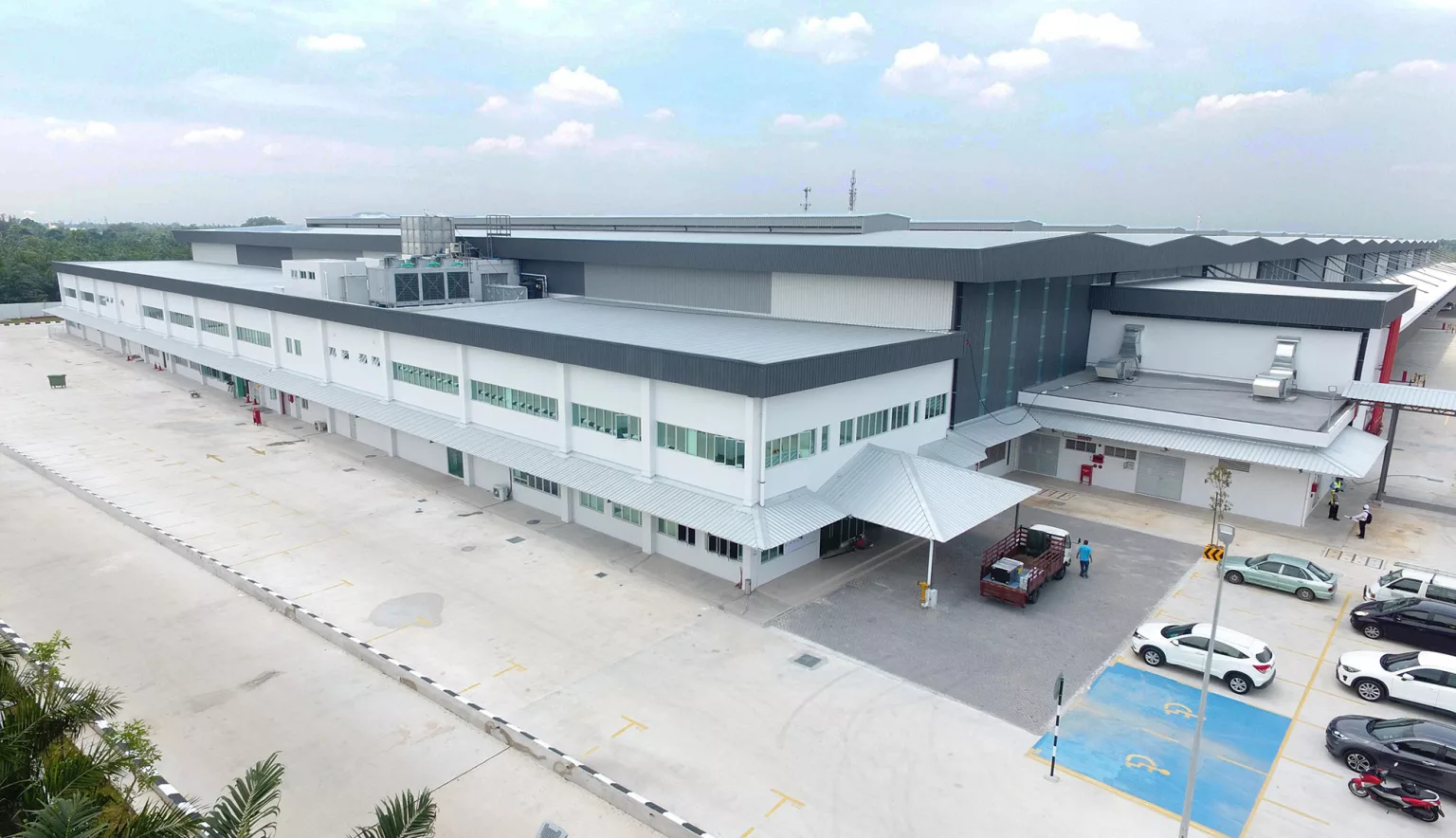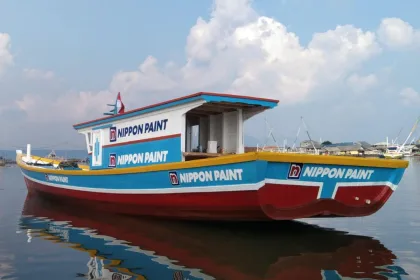Vinesh Natali of Meinhardt EPCM talks about the building industry’s past, present, and future, the company always looking ahead to the next trend in construction.
LOOKING FOR THE NEXT HORIZON
The engineering industry is one that paves the way for the progressive future of countries and cities.
Throughout time, civilisations have pioneered new and innovative ways of using all manner of materials to construct buildings spanning a tremendous array of shapes and sizes, the constructs seen today unfathomable to architects and engineers of yesteryear.
Such developments have enabled cities to house more people and, as populations continue to soar, it is imperative now more than ever to maximise the use of space.
In Asia-Pacific, Meinhardt EPCM stands as a prominent player in the engineering and construction sphere.
Established by founder Bill Meinhardt in Australia in 1955, the firm has grown into a regional player in Asia Pacific, its present-day headquarters now situated in Singapore. From here and its other regional offices, the company provides professional civil and structural engineering, infrastructure planning, sustainability planning, and a multitude of other services to international clientele.
The results for clients’ investments are award-winning buildings, urban development, transportation and infrastructure projects, advanced manufacturing, and smart technologies, among other outcomes.
Vinesh Natali has been with the company for over five years and sits as the firm’s Global Head for the EPCM business, having witnessed not only the growth of Meinhardt EPCM to its current 350 employees, but also the development of the entire EPCM service sector.
“The fundamentals haven’t changed, the way of thinking has,” he says.
Interestingly, Mr Natali had not aimed to work in the engineering industry.
“I wanted to become an architect, but while pursuing the career path I chose engineering – electrical engineering was my technical field,” he continues.
“Looking back, I think it was the right choice to make at the time because, naturally, engineering took me across several countries and regions to work across a variety of projects in multiple sectors,” he says.
Mr Natali’s experience in the industry allowed him to work professionally for projects of different sizes, from the smallest developments to larger buildings and even mega-projects. All the while he continued upwards, he held to a specific value that he believes is key to progressive development, both in the industry sector and in his own work.
“During my career, one thing I made sure of is that I stayed true to the profession rather than chasing quick monetary benefits,” Mr Natali says. “That really developed a very strong foundation in my career growth.
“That was a very good investment of time and efforts. Naturally, there were many opportunities that came along in the sector with higher benefits, but I stayed true to the course.”
Through utilising knowledge and skills rather than harbouring a monetary focus, he was able to be flexible and involve himself in a multitude of projects spanning sectors, allowing him to gain knowledge and experience across the board.
And on top of this, it gave him the opportunity to work with others and develop together, sharing industry knowledge between each other that allowed each of them to expand and diversify their work either collectively or individually.
Working in various regions gave Mr Natali an insight into socioeconomic and developmental progression of many countries’ urban centres, and consequently his own industry.
“Now it has come to a point at which the Asian economies are doing a lot better,” he adds. “There are a few that are still playing catch up, but the talent pool that is available to these industries in humongous, not only South Asia, but also the East and South East Asia, and the rest of region.”
From witnessing the economic rise of regions, he has seen how globalisation has pushed on the development of building engineering. It has been (and continues to be) this surge in interconnectivity and rising talent that drives the leap forward of upcoming generations.
“In the industry, where things are moving towards more automation, more digitisation, more data, you’re dealing with an different skilled workforce that is hungry for experience and knowledge, and that will keep driving the development forwards.”
According to Mr Natali, engineering has evolved from a technical profession involving many layers of planning and assessment to a practice that requires technical and management skills and with the requirement for smarter, sustainable, digital based solutions etc, engineering is constantly going to evolve and advance by refining its processes.
When Mr Natali looks back on his 28 year career and then towards the future of engineering, he realises how far the industry and Consulting practises have come – how the sector has developed from a pure technical profession to a widespread practise requiring much more than just technical expertise, and that the future will be radically different to even that of 20 years ago.
The engineering industry has rapidly evolved through the past two-and-a-half decades. Where the 1990s saw the rise of globalisation and the rise of technology in mass use, the following years saw a radically altered professional environment spearheaded by digital connectivity.
“I started my career in 1992, and at that time the focus was on going global and local cost centres, and globalisation was on everyone’s mind as well as looking for lower cost opportunities,” Mr Natali says.
“We were going through an era of change at that time where, if you looked at the industrial sector, we were going towards conversion of manual operations to early generation automation. The 90s was ramping through this automation resulting in our firm doing a lot of work in those areas, which was considered a skill for that time.”
Since the global use of digital communication and services, the engineering industry has evolved and adapted to make such services simpler and easier. The days of blueprints and hand drawn-up plans have made way for CAD (computer-aided design) and now we are heading towards greater use and adoption of BIM. These changes are paving the path for a new generation engineer equipped with new skills to design and execute with greater optimisation to meet the new challenges that industry faces.
And even as it comes to the building of new projects knowledge of modernised and efficient methods of construction are needed as to assure an optimal outcome for any project. Because of this, Mr Natali believes that the skills needed in the future for engineering will change.
“Nowadays we have become Data savvy and we are surrounded by it” he says. “This is not exactly a threat for the engineering industry, but more an opportunity. For example, if you look at projects in various sectors being built today, it is highly likely that similar design or construction has been done already somewhere. So, the future is going to be: using the existing knowledge and data available, how do we optimise the new builds by using the learnings and knowledge to bring in efficiencies in speed to market, cost’s and wastage.”
Although this could be perceived as something akin to the gradual stagnation of a profession, Mr Natali believes that it is simply the evolution of the engineering profession, not the decline of them. Engineers will go on to act in a growing the various sectors with new skills to meet the aspirations of the clients driven by the needs of the industry.
“The way I see it, we are at a juncture of a major transition, and this is just the beginning. From here, just as the IT and Technology sectors grew over the last 25 years, in 25 years’ time we will be living in a very different world.”
Indeed, Meinhardt EPCM prides itself on many attributes, and this adaptation to change is one of them.
Moving forward through the digital/ technology age, the firm remains focused on being ahead of the game and above the industry competition.
“One of the biggest differentiators as an employer, or a company to work with, is the variety of projects in various sectors, the flexibility and agility to provide the baseline for entrepreneurial flare and working alongside Industry experts and the ease of doing business than some of our competitors,” Mr Natali says.
“Our management structure is quite flat, which means that you don’t have to go through several layers of unnecessary approval to move matters forward with greater agility.”
Working in the engineering and construction industry relies heavily on the communication to and relationships with external companies, groups, and individuals. It is through these kinds of partnerships that businesses can work to mutually beneficial outcomes and push projects forward seamlessly. For Mr Natali, these partnerships are what makes Meinhardt function.
“This is extremely important for a business like ours,” he continues. “If you are working on multiple projects like we are, one of the challenging issues you might have is something going wrong in the supply chain. If you don’t have the right supply chain partners, that poses a major risk for you.
“Fortunately for Meinhardt EPCM, we rely on a resolute and reliable network of partners who work with us “hand-in-glove” to deliver on a for us and our clients.”
OVERCOMING CHALLENGES
But every industry has its obstacles. Since the outbreak of this year’s coronavirus pandemic, almost every sector has been negatively affected.
COVID-19 has brought many plans and projects to a halt as the globe adapts to the new restrictions concerning workplace functionality and behaviour. For the engineering industry, the communication and liaison between businesses and clientele has been disrupted as a result of widespread rearrangement of company organisation on both ends.
“COVID-19 has slowed our progress, but the company goals remain all the same, and the most important one is that we remain resilient in our efforts and projects – that is the front and foremost objective,” Mr Natali says.
The progress of building plans and projects has also been impacted by the requirement of many client companies to reduce spending. Firms such as those in the aviation industry have suffered catastrophic losses and have resorted to redundancies as a result of very limited commercial activity. Those clients who have been affected by COVID-19 in this manner are, understandably, hesitant to commit to large capital expenses on large construction projects.
As for the future, Meinhardt is always “looking to the next horizon” in the words of Mr Natali. Each decade since 1965 has represented the start of one horizon after the end of a previous era. By 2025, the firm is looking to develop itself in many ways.
On top of becoming increasingly sustainable, the company’s plans centre around expansion, technological advancement, and the refining and development of the services it provides.
“We are looking to expand into Latin America and Oceania, which will take priority after maintaining our sustainability commitments,” Mr Natali continues. “Next in line is the increased transition into digitisation within engineering sphere, exploring further into the renewable energy sectors – biogas, wind and solar, energy options that are alternatives for the future, and the supporting infrastructure that joins those.”
Meinhardt EPCM is also looking to shift its construction provision into a full turnkey service that will bring a smoother and higher paced end-to-end transition. Lastly, adoption of technology and new skills in engineering is key to the future of the industry. Here, the firm aims to use technology in all delivery models as it adapts and evolves in the new technological era.





































